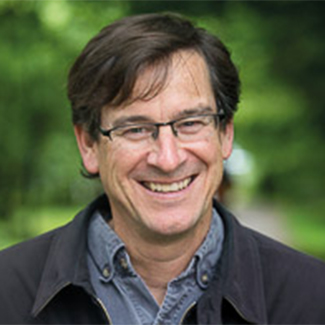Don Mitchell
Distinguished Professor Emeritus, Geography and the Environment Department
Senior Research Associate, Program for the Advancement of Research on Conflict and Collaboration
Highest degree earned
Areas of Expertise
Research Interests
I am particularly interested in three areas.
The theorization and historical study of the production of landscape, particularly as it relates to laborers and the working classes. Much of my work in this area is historical (early to mid 20th century), with the goal of reclaiming the importance of workers’ lives in the making of landscapes. Recently I have begun to look at contemporary landscapes of migratory labor in California.
The production and meaning of public space, particularly as it is transformed in attempts to control the behavior of homeless, other marginalized people and protesters. Much of this work is contemporary and I have recently begun focusing specifically on the relationship between law, rights and public space.
Theories of culture, particularly as they have been developed in Marxism and geography. I am concerned with examining and explaining the ways that "culture" has become a primary arena of social struggle, and a principle means for exercising power.
Together, these three areas of study are approached through a broadly Marxist, and certainly radical and materialist, framework. I start from the position that scholarship and political commitment cannot be divorced.
Selected Publications
On Landscape and Laborers
They Saved the Crops: Labor, Landscape, and the Struggle over Industrial Farming in Bracero-Era California (Athens, GA: University of Georgia Press, 2012).
The Lie of the Land: Migrant Workers and the California Landscape (Minneapolis: University of Minnesota Press, 1996)
Kenneth Olwig and Don Mitchell (eds.) Justice, Power and the Political Landscape(London: Routledge, 2009)
“Work, Struggle, Death, and Geographies of Justice: The Transformation of Landscape in and beyond California’s Imperial Valley,” Landscape Research 32(2007), 559-577 (Reprinted in Kenneth Olwig and Don Mitchell (eds.) Justice, Power and the Political Landscape (London, Routledge, 2009).
“California Living, California Dying: Dead Labor and the Political Economy of Landscape,” in K. Anderson, S. Pile, and N. Thrift (eds.), Handbook of Cultural Geography (London: Sage, 2003), 233-248.
“Landscape,” in D. Sibley, D. Atkinson, P. Jackson, and N. Washbourne (eds.), Critical Concepts in Cultural Geography (London: I.B. Taurus, forthcoming).
“The Geography of Injustice: Borders and the Continuing Immiseration of California Agricultural Labor in an Era of ‘Free Trade,’” Richmond Journal of Global Law and Business (2002).
“The Devil’s Arm: Points of Passage, Networks of Violence and the Political Economy of Landscape,” New Formations 43 (2001), 44-60.
“The Scales of Justice: Localist Ideology, Large-Scale Production and Agricultural Labor’s Geography of Resistance in 1930s California,” in Andrew Herod (ed.), Organizing the Landscape: Geographical Perspectives on Labor Unionism (Minneapolis: University of Minnesota Press, 1998).
On Public Space, Radical Politics and Marginalized Peoples
Lynn Staeheli and Don Mitchell, The People’s Property? Power, Politics, and the Public(New York: Routledge, 2008)
Don Mitchell,The Right to the City: Social Justice and the Fight for Public Space.
Don Mitchell and Nik Heynen, “The Geography of Survival and the Right to the City: Speculations on Surveillance, Legal Innovation, and the Criminalization of Intervention,”Urban Geography (Forthcoming).
Lynn Staeheli and Don Mitchell, “USA’s Destiny? Regulating Space and Creating Community in American Shopping Malls,” Urban Studies 43 (2006), 977-992.
“Property Rights, the First Amendment, and Judicial Anti-Urbanism: The Strange Case of Hicks v. Virginia,” Urban Geography 26 (2006), 565-586.
Don Mitchell and Lynn Staeheli, “Permitting Protest: Constructing – and Dismantling – the Geography of Dissent in the United States,” International Journal of Urban and Regional Research 29 (2005), 796-813
“The S.U.V. Model of Citizenship: Floating Bubbles, Buffer Zones, and the Rise of the ‘Purely Atomic’ Individual,” Political Geography 24 (2005), 77-100.
The Right to the City: Social Justice and the Fight for Public Space (New York: Guilford, 2003).
On Culture, Geography, and General Trouble-Making
Don Mitchell,Cultural Geography: A Critical Introduction.
“Confessions of a Desk-Bound Radical,” Antipode 40 (2008), 448-454 (Reprinted in: K. Mitchell [ed.], Practicing Public Scholarship [Oxford: Blackwell-Wiley, 2008], 99-105).
“Which Side Are You On? From Haymarket to Now,” ACME 7 (2008), 59-68.
“The Insidious Work of the University,” Human Geography 1 (2008), 1-11.
Lynn Staeheli and Don Mitchell, “The Complex Politics of Relevance in Geography,” Annals of the Association of American Geographers 95 (2005), 357-372
“You Who Are the Bureaucrats of Empire: Remember Who We Are,” Antipode 37 (2005), 203-207.
“Working-Class Geographies: Capital, Space, and Place,” in S. Linkon and J. Russo (eds.), The New Working-Class Studies (Ithaca: Cornell University Press, 2005), 78-97.
“Geography in an Age of Extremes: A Blueprint for a Geography of Justice,” Annals of the Association of American Geographers 94 (2004), 764-770.
Scott Kirsch and Don Mitchell, “The Nature of Things: Dead Labor, Nonhuman Actors, and the Persistence of Marxism,” Antipode 36 (2004), 681-699.
“Culture is Not What it Used to Be: The Transformation of Anglo-American Cultural Geography,” Jimbun-chiri (Japan), 53 (1) (2001), 36-53.
Cultural Geography: A Critical Introduction (Oxford and Malden, MA: Blackwell Publishers, 2000).
“The End of Culture? Culturalism and Cultural Geography in the Anglo-American ‘University of Excellence,’” Geographische Revue (Germany), 2 (2) (2000), 3-17.
Scott Kirsch and Don Mitchell, “Earth Moving as the ‘Measure of Man’: Edward Teller, Geographical Engineering, and the Matter of Progress,” Social Text 54 (1998), 100-134.
“There’s No Such Thing as Culture: Towards a Reconceptualisation of the Idea of Culture in Geography,” Transactions of the Institute of British Geographers 19 (1995), 102-116.
Previous Teaching Appointments
Spring 2008, Visiting Professor, Scholars Program in Culture and Communication, Annenberg School for Communication, University of Pennsylvania
2003-2007 Department Chair, Syracuse University (beg. July 1)
2002-2006 Professor, Syracuse University
1997-2002 Associate Professor, Syracuse University
1994-1997 Assistant Professor, University of Colorado
1992-1994 Instructor, University of Colorado
1996-2003 North American Editor, Cultural Geographies
